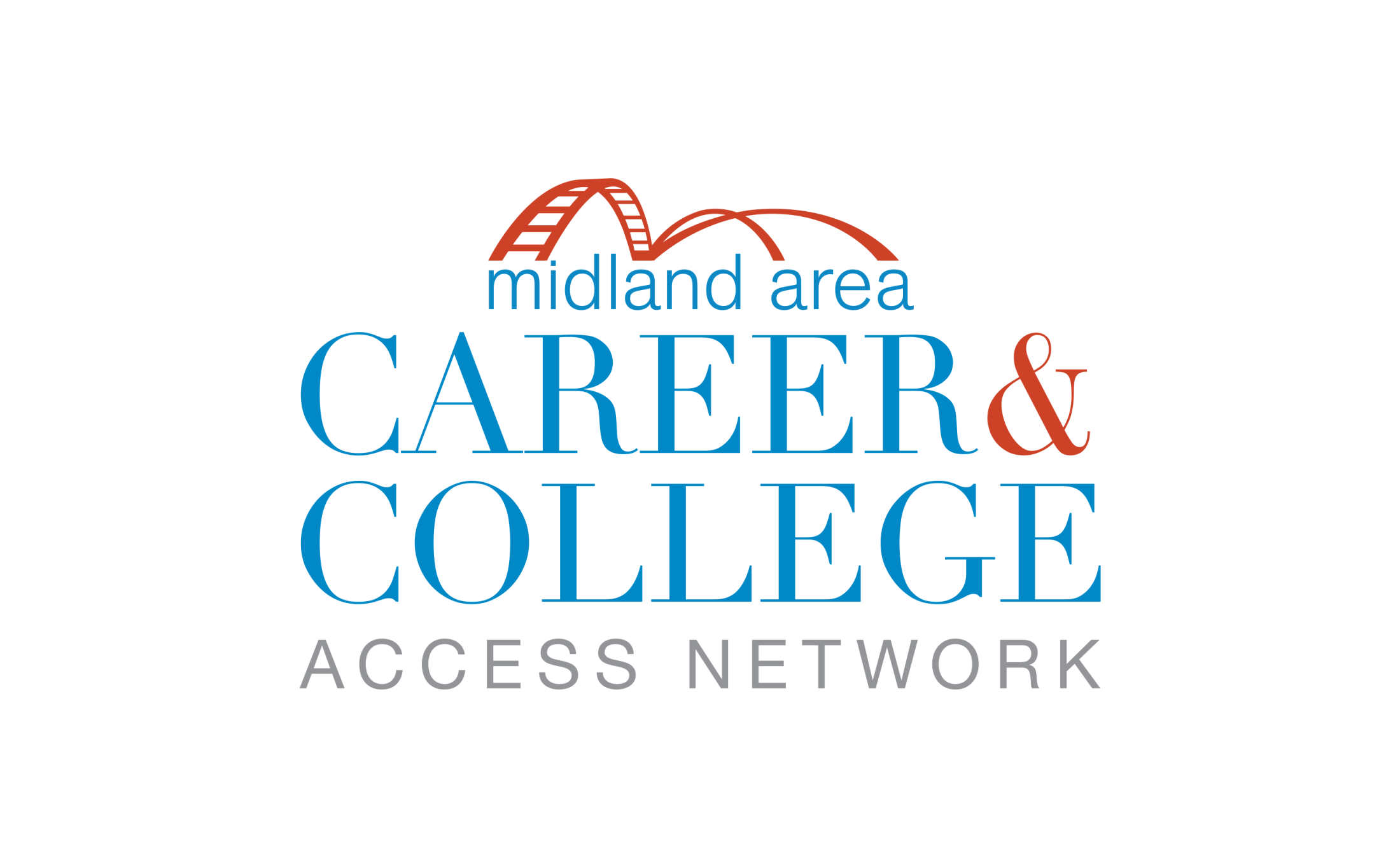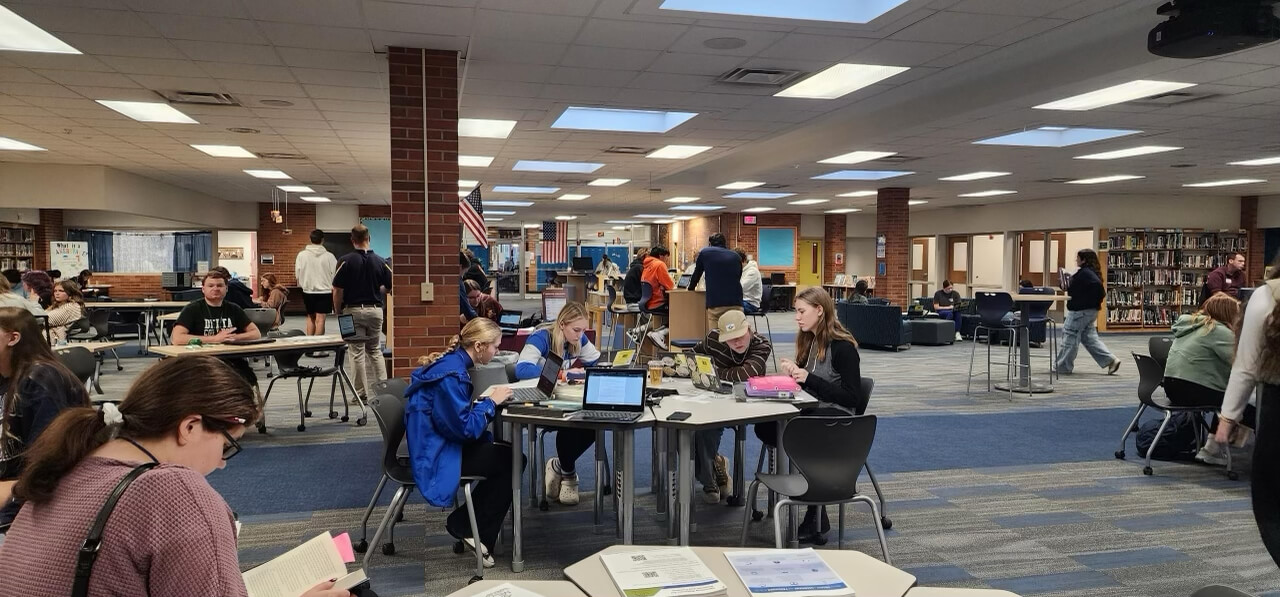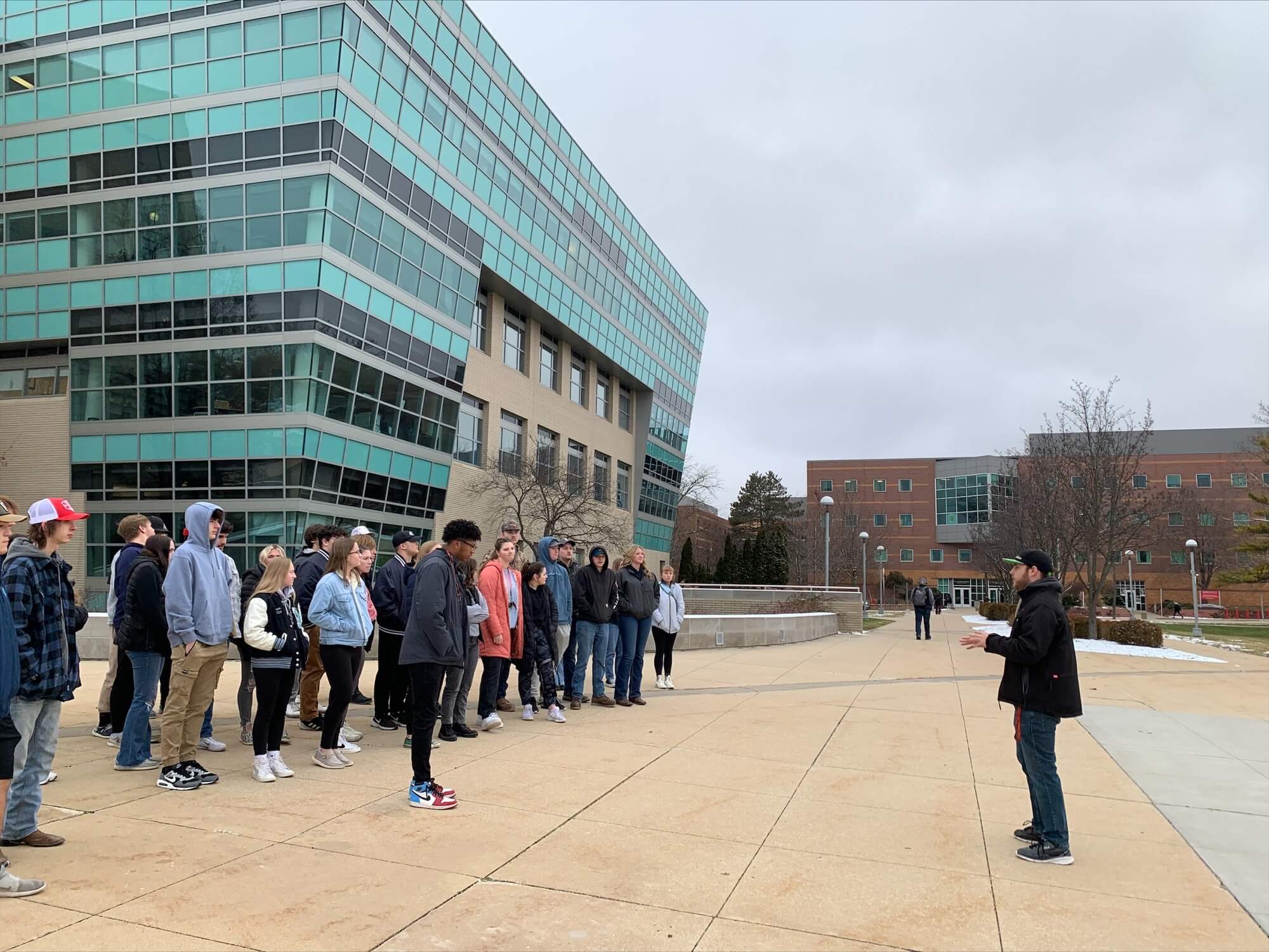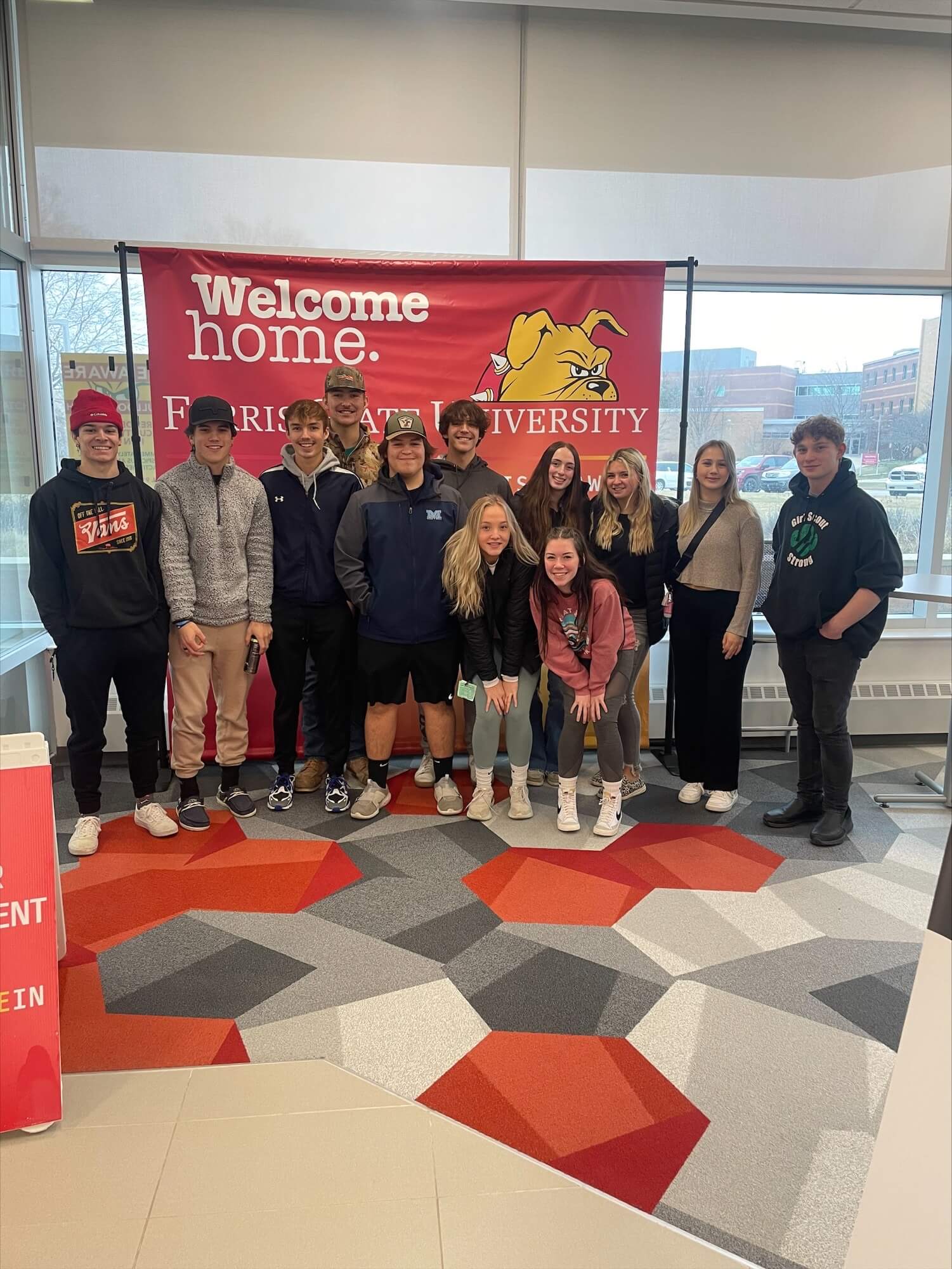Midland Area Career & College Access Network

Why We Exist
The Midland Area Career & College Access Network is a learner-centered, community-minded network united in facilitating equitable postsecondary education access and attainment in and around Midland County.
Our Events
Postsecondary Education – Defined
Our Purpose & Values
Our Impact Goals & Teams
Our Impact Measures
Our Community Partners
Our Postsecondary Landscape
Get Involved

Events

What is Postsecondary Education?
Postsecondary education encompasses any degree or certificate-bearing education that a learner experiences following the earning of a high school diploma or GED. This can include traditional 2 and 4-year college degree programs, trade certificate programs, and other certificate-bearing career training programs.

What is our purpose?
- Ensure equitable access to comprehensive services aimed at assisting all students in completing postsecondary education, but especially first-generation, low-income, and students of historically marginalized populations.
- Build a culture that encourages completion of career preparation or college education.
- Increase success of both traditional and nontraditional students through lowering barriers.
What are our values?
- Postsecondary education is the attainment of education beyond high school, including postsecondary certificates and academic degrees.
- Postsecondary education is a necessity: Postsecondary attainment dramatically increases an individual’s economic independence in a knowledge-based economy.
- Postsecondary education is for everyone: We work toward changing the systems that perpetuate inequities in postsecondary attainment.
- Postsecondary education is a public good: Postsecondary attainment is critical to a just and equitable society, strong economy, thriving democracy, and healthy community.

What are our Impact goals?
All Midland County learners will:
- be academically, developmentally, and financially prepared for postsecondary study by the end of high school.
- enroll in college/post-secondary education within six months of high school graduation or GED completion.
- complete a college or postsecondary credential within six years of high school graduation or GED completion.
How do we come together for impact?
The Midland Area Career and College Access Network increases postsecondary access and attainment opportunities to Midland County residents through the action of 3 teams: The Adult Learner Team, The Postsecondary Student Success Team, and the Leadership Team. Each team is comprised of a cross-section of our community’s direct service providers and leaders—from K12 education, postsecondary education institutions, nonprofit organizations, philanthropic organizations, businesses, and workforce development organizations.
- Adult Learner Team: This action works together to connect adult learners to postsecondary pathway opportunities through lowering barriers and supporting learners to and through “the next right step” towards degrees, certifications, credential completion, and career development. Direct service providers (such as human resource recruiters, social workers, and adult degree program advisors) and leaders (such as adult learning program coordinators) from postsecondary, business, workforce development, nonprofit, and philanthropy serve on this team.
- Postsecondary Student Success Team: This action team works together to support high school students as they prepare for, transition to, and persist through postsecondary education by lowering barriers. Direct service providers (such as high school counselors, college advisors, admissions representatives, and trade school advisors) and leaders (such as principals) from K12, postsecondary, workforce development, nonprofit, and philanthropy serve on this team.
- Leadership Team: This team leads the entire initiative as decision-makers, builders of public will, providers of vision and strategic direction, mobilizers of funding, and facilitators of systems-level change.

How do we measure our impact?
- Increase the percentage of graduating seniors who complete a FAFSA.
- Increase the percentage of graduating seniors/those completing a GED that enroll at a postsecondary education within 6 months of graduation/completion.
- Increase the percentage of Midland County students who persist for a second year of college or postsecondary training.
- Increase the percentage of Midland County students who complete a postsecondary credential within 6 years of high school graduation/GED completion.
- Increase the visibility of postsecondary pathways to all Midland County residents; increase the visibility of diverse postsecondary success stories in engaging more learners in postsecondary opportunities.
MCAN Impact Map Performance Overview for Midland County:
Performance Overview – Impact Map (micollegeaccess.org)
Impact Sampler:
- A first-generation student attending Windover High School completed a Martin Luther King Scholarship Application, marking the first ever application from a Windover student. (November 2022)
- Over 80% of Bullock Creek High School first-generation college students completed at least one college application. (December 2022)
- A first-generation student attending ACEA completed the FAFSA, Albion College application, and Community Foundation Scholarship Application. If accepted to Albion College, this student will also receive the Albion College Promise, covering full tuition. (December 2022)
- 8 of 11 Windover High seniors have completed the FAFSA (February 2023)
- A student learned she was TIP eligible and cried tears of joy realizing she could better her circumstances. She’s developed a postsecondary plan, which includes beginning studies at Delta this Fall and then transferring to SVSU. (December 2022)
- Meridian and Coleman students took field trips to Ferris; for most, it was their first time ever on a college campus. Students’ motivation to get to a campus as college students grew. (January 2023)
- Meridian and Coleman hosted Alumni panels to engage students in postsecondary stories firsthand. Alumni of diverse backgrounds working in a variety of fields spoke about their college/trade school experiences and their transitions out of high school into postsecondary spaces. These events were heavily and enthusiastically attended by students. (January 2023)
- Coleman held a Scholarship Workshop. The majority of Seniors attended (thanks to the support of the English IV teacher). Every present workforce student started the HBA Building Trades Scholarship, while every trade school and college student started or completed the Community Foundation Scholarships. Some students even completed their FAFSA during this workshop! (December 2022)
- Over 82% of first-generation Coleman seniors have submitted a College Application. (February 2023)
- Over 100 Dow High and Midland High’s TIP eligible students were individually contacted by their College Adviser about their TIP eligibility. Most were unaware this benefit applied to them and appreciated an explanation of the TIP program and help setting up their portals. (November 2022)
- All first-generation students at Midland High and Dow High have their postsecondary plans in motion. This means they’ve completed their FAFSAs, college applications, trade school applications, and/or have secured jobs. (February 2023)
- ACEA held 2 successful “Career Days” during which members of the community spoke with the students about their careers, answered questions, and gave advice. One day was focused on trades, and the other on First Responders; students interested in these career pathways were very engaged in the event. Link to Midland Daily News article: https://www.ourmidland.com/news/article/First-responders-speak-to-students-at-ACEA-career-16924429.php (February 2022)
- A Bullock Creek senior student did not have parental support to go to college, so they were unable to complete the FAFSA. They did not know what their next steps were, and they thought there was no chance of pursuing their goals and going to college. The advisor met with them multiple times to figure out what could be done, helped them complete their FAFSA as an independent student, connected them with scholarship opportunities, and supported them with every step along the way – the student is now attending a 4-year university at no cost to them. They are still doing well after their first semester, and they have noted that they would not be in this position without all of the support from their advisor. (November 2022)
- An ETC student received their GED, and they wanted to continue their education so they could have more job opportunities with better pay. However, they were worried about the cost and they did not know how to begin the college-going process. The ACEA Adviser met with this person and helped them complete their Michigan Reconnect application, FAFSA, and Delta College applications. All of these steps were completed in one day, and the remaining steps for Delta College were mapped out as well. The student was very thankful and cried tears of joy when they realized they were accepted to the Reconnect Program and Delta College, allowing them to get a college degree at no cost. (November 2022)

Who are our community partners that make this impact possible?
Academic and Career Education Academy
Delta College Downtown Midland Postsecondary Resource Guide
Department of Health and Human Services Midland County
Discover You at The Rock Center for Youth Development
Educational Opportunity Center at Delta College Postsecondary Resource Guide
Education and Training Connection Midland
Family and Children’s Services of Mid-Michigan
Greater Michigan Construction Academy
Great Lakes Bay Michigan Works Resource Guide
Midland County Educational Services Agency
Midland Area Community Foundation Postsecondary Resource Guide
MichiganWorks! Great Lakes Bay Region
Midland Area Community Foundation
Northwood University Postsecondary Resource Guide
ROCK Center for Youth Development Postsecondary Resource Guide

What does our postsecondary landscape look like in Midland county?
The pandemic continues to underscore Midland County’s need for an engaged citizenry and a strong workforce equipped to compete and thrive in a rapidly-changing global economy. At current, 70% of jobs in Michigan require postsecondary education. Midland Area Career and College Access Network (MCCAN) aims to help everyone in Midland County access and attain postsecondary certificates and degrees—the foundation for success in a knowledge-based economy—so they can achieve a lifetime of their own goals, both economically and intellectually, and help Midland County thrive.
Primary to MCCAN’s efforts is championing postsecondary education in and around Midland County; working to invite and support all—regardless of background—to access and achieve in postsecondary education is key to this championing. In connecting all learners with supportive programs, resources, and opportunities and in making postsecondary and career pathways transparent and available, MCCAN supports this college-going and career-building culture.
Poverty continues to persist as a primary barrier to postsecondary access and attainment in and around Midland County, as over 10% of its population—over 9,000 community members—live in poverty. Moreover, the “asset-limited, income-constrained, employed” (ALICE) population has risen in Midland County to 19%—over 18,000 community members—and hovers just above the poverty line. While the recent influx of state financial aid for postsecondary education can reduce financial barriers for some learners, it is the work of MCCAN to connect learners to these and to other financial aid opportunities, such as local scholarships, apprenticeships, work-studies, and employer-sponsored continuing education. MCCAN aligns its efforts with the Michigan College Access Network’s state-wide Strategy for an Educated Workforce as it continues to prioritize and cultivate cross-sector alignment on workforce integration through promotion, partnerships, and professional development opportunities.
In addition to barriers presented by poverty, Midland County youth (and adult learners) have suffered academic learning loss, along with a loss in positive identity assets and an increase in risk-taking behaviors since the onset of the pandemic. More than half of Midland County students surveyed in October of 2021 did not have 3 of these 4 positive identity assets, which correlate to academic learning gains: self-esteem, sense of purpose positive view of personal future, and personal power. Risk taking behaviors, which correlate to academic learning losses, have increased significantly: 34% of females and 18% of males report depression, 21% of females and 13% of males report attempted suicide, and 30% of females and 17% of males report eating disorders. MCCAN is committed to connecting young adults and their families to developmental asset building supports, mental health services, special services, literacy and academic support services, and economic services; this work ensures learners’ needs are met, thus making postsecondary education access and attainment feasible.
Midland County’s ethnic makeup is becoming more diverse, as the white population had its largest decrease between 2010 and 2021 and the Hispanic/Latino population grew the most, making up 3.3% of the population in 2021. Encouragingly, the Midland County’s 2021 Youth Study also reported a 6% increase in the internal asset of equity and social justice in Midland County’s youth. As MCCAN seeks to wrap its arms around Midland County youth and support postsecondary access and attainment for all learners in Midland County, decision-making and practices will reflect the value of equity.
Sources:
1-MCAN Strategy for an Educated Workforce 2022-2024. MCAN Strategy for an Educated Workforce 2022-2024.pdf | Powered by Box 2022.
2-USA Facts. Our Nation in Numbers; Government Data to Drive Fact-Based Discussion. USAFacts | Nonpartisan Government Data 2022.
3-Midland County Youth Studies. “Profiles of Student Life: Attitudes and Behaviors,” Profiles of Student Life: Attitudes and Behavior Study – The Legacy Center (tlc4cs.org) 2021.

Interested in learning more and getting involved?
Connect with Kristin Sovis, Midland Area Career & College Access Coordinator and Postsecondary Education Leader at the Midland Area Community Foundation, at ksovis@midlandfdn.org.

